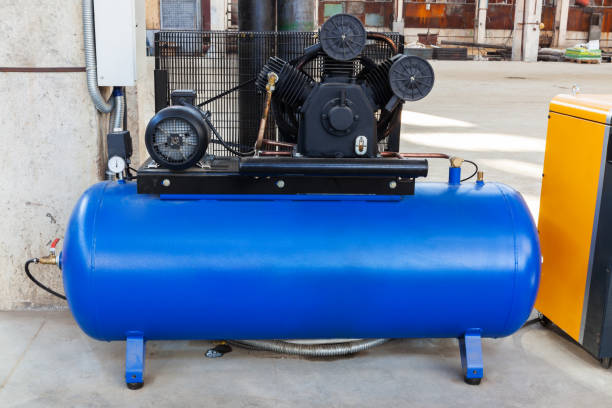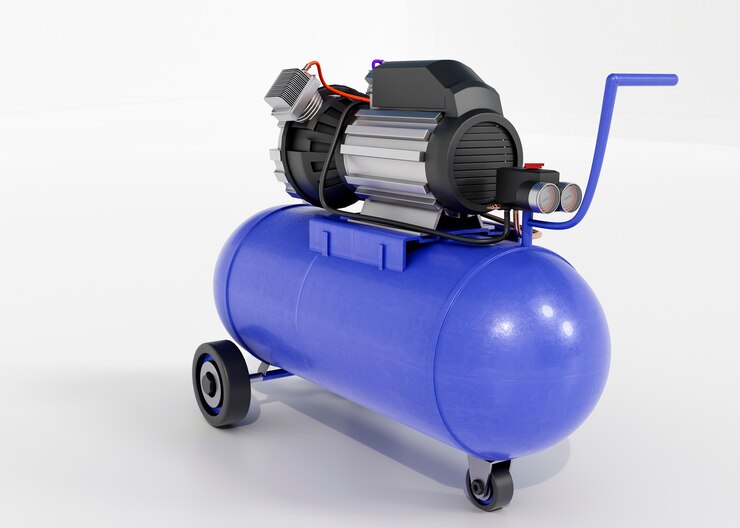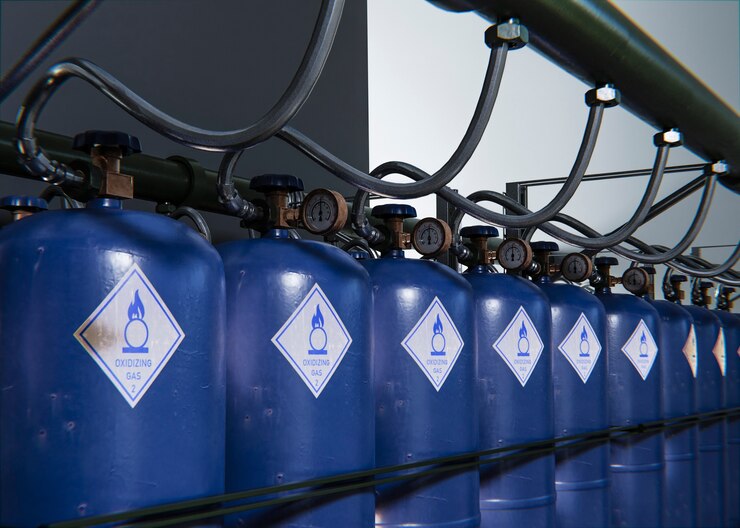The Powerhouse of the Pipeline: How Natural Gas Compressor Work
An Extensive Guide to Natural Gas Compressors, The Powerhouse of the Pipeline
An essential component of our world’s energy balance is natural gas, a fossil fuel with a clean burn. The natural gas compressor is a technological marvel that is necessary for the long-distance transportation of this precious resource. These pipeline industry workhorses compress natural gas molecules together, generating pressure and facilitating effective conveyance across extensive networks.
This thorough book delves deeply into the world of these compressors, examining their inner workings, various varieties, uses, and things to think about when choosing the best one for your requirements. You may learn a lot about the natural gas sector and the technologies that power our energy supply by comprehending these fundamental elements.
Revealing the Core: The Operation of Natural Gas Compressors
Natural gas compressor uses a variety of techniques in contrast to piston-based typical air compressors to produce high-pressure gas. Below is an explanation of the basic ideas underlying some of the more popular kinds:
- Reciprocating Natural Gas Compressor:
A piston in a cylinder compresses natural gas by moving back and forth, much like in an automobile engine. Although these compressors are renowned for their dependability and capacity to operate at high pressures, they may need to be lubricated with oil, which raises the possibility of contamination.
- Centrifugal Natural Gas Compressor:
The natural gas is given velocity by rapidly spinning impellers, which then diffuse the gas into pressure. Because of their enormous flow rates, centrifugal compressors are a good fit for pipeline applications on a wide scale.
- Screw Natural Gas Compressor:
As the screws revolve, natural gas is captured and compressed by the intermeshing screws inside the compressor casing. The flow rate and pressure capacities of these adaptable compressors are balanced.
- Axial Natural Gas Compressor:
These compressors constantly accelerate the gas stream to reach high pressure at the discharge by using revolving airfoils, which resemble aeroplane propellers.
- Cryogenic Natural Gas Compressor:
Cryogenic compressors work at extremely low temperatures to liquefy natural gas (LNG) for applications that need the gas to condense into a liquid condition for long-distance transportation.
A Wide Range of Uses: Where Natural Gas Compressors Thrive
Natural gas powers our factories, homes, and power plants because it burns cleaner than conventional fossil fuels. However, a mechanical marvel called a natural gas compressor is needed to transport this priceless resource from its source to our doorsteps. Throughout the entire natural gas journey, these silent giants labour nonstop to ensure effective transportation and usage. Let’s examine a few important uses for these compressors that show off their best qualities:
- The Lifeblood of Pipelines:
Natural gas naturally loses pressure as it moves away from wellheads. Robust compressors located in well-planned compressor stations rekindle the flow. These workhorses are constantly applying more pressure, which makes sure the gas moves through pipes over long distances with efficiency.
- Wellhead Champions:
The pressure required for pipeline transportation is frequently absent from natural gas collected from the ground. The wellhead compressor initiates the gas flow into the pipeline network by supplying a preliminary pressure increase. This crucial initial step guarantees that the natural gas travels without incident.
- Powerhouses of the Gathering System:
Natural gas wells are frequently dispersed over large areas. Gas is gathered from each of these individual wells by gathering systems, which then move the gas to a central site for further compression and processing. In this case, the effective movement of the collected gas via the gathering network is mostly dependent on natural gas compressors.
- Guardians for Underground Storage:
Natural gas can be kept underground in depleted reserves during times of low demand. The engine of this operation is the compressor, which forces high-pressure gas injection into these storage tanks for eventual recovery. These same compressors assist in drawing gas from storage when demand increases, guaranteeing a steady supply all year round.
- Processing Plant Partners:
Before natural gas satisfies pipeline quality requirements, contaminants may need to be removed from the wellhead. Compressors frequently serve as auxiliary equipment in natural gas processing facilities, which employ a variety of techniques. They can facilitate the flow of gas through several processing steps, guaranteeing effective and superior results.
- LNG Production Enablers:
Natural gas is liquefied for international transportation by being cooled to extremely low temperatures. For this procedure, cryogenic natural gas compressors are necessary. They produce the high pressures required to cause the gas to liquefy, making it possible to move cargo effectively over large oceans.
- Power Generation Efficiency Experts:
Experts in Power Generation Efficiency Power plants can run cleanly on natural gas as fuel. These facilities can employ natural gas compressors to control pressure to generate power with the best possible combustion efficiency and therefore contribute to a more sustainable energy future.
This is but a sampling of the many uses for these compressors. These silent workhorses, a vital component of the world’s energy system, guarantee the effective and dependable supply of natural gas from the wellhead to our homes.
The Balance: Exposing the Advantages of Natural Gas Compressors
Compressors for natural gas are the unsung heroes of the natural gas sector. These workhorses quietly drive the effective use and transportation of this clean-burning fuel source. But why are they worth so much? Now let’s examine the main advantages of natural gas compressors that make them more appealing:
- Unmatched Efficiency:
Contemporary natural gas compressors have astounding efficiency ratings that frequently surpass those of air compressors. In the long term, this results in significant cost savings on energy bills, which makes them a financially appealing choice.
- Long-lasting devices:
Solid as a rock Natural gas compressors are long-lasting devices. Reliability and low downtime are guaranteed by robust designs and continuous duty capacities. This reduces interruptions and provides your business with a steady gas supply.
- First and foremost, safety.
Although it provides clean energy, natural gas has the potential to explode. Natural gas compressors are built with cutting-edge safety measures that prioritize the environment’s and people’s safety while guaranteeing the controlled and safe compression of natural gas.
- Oil-Free Options:
Diaphragm and electrochemical compressors provide the vital advantage of oil-free operation for applications needing ultra-pure natural gas. Because of this, there is no longer any chance of oil contamination in the compressed gas, which makes it perfect for use in delicate operations like natural gas turbine power generation.
- Versatility for Various Needs:
Natural gas compressors are available in a range of designs, such as single-stage and multi-stage versions, as well as oil-injected and oil-free types. This enables you to locate the ideal match for your particular application, be it the clean air standards of the manufacturing industry or the high-pressure demands of natural gas refuelling stations.
- Lower Maintenance Costs:
Although regular maintenance is essential for any equipment, these compressors often need less maintenance than some more conventional choices. As a result, servicing your compressed natural gas system will cost less and take less time, freeing you up to concentrate on your primary business activities.

The Compass of Selection: Handling Natural Gas Compressor Decisions
The key to using this clean-burning fuel efficiently is the utilization of these compressors. However, choosing the best solution for your needs can seem like exploring unfamiliar land because there are so many different sorts and possibilities accessible. Do not be alarmed! This guide provides you with the necessary information to weigh before making your decision:
Requirements for Applications:
Understanding your unique application is the first step. What natural gas pressure and flow rate are you in need of? Think about things like:
- Needs for high pressure and quick filling:
Gas stations frequently need these features.
- Moderately pressured, consistent flow rates:
This could work well for chemical processing.
Compressor kind: Every kind has certain benefits.
- Diaphragm compressors:
Perfect for high-purity, oil-free applications (like power generation).
- Piston compressors:
These devices work well under high pressure.
- Centrifugal compressors:
Pipelines and other large-scale, high-flow applications are the ideal uses for centrifugal compressors.
- Screw compressors:
Provide a varied balance between flow and pressure.
- Electrochemical compressors:
Compressors with electrochemical technology are an emerging technology that may not be appropriate for all applications due to their high efficiency.
Oil-free versus oil-injected:
- Oil-injected compressors:
More versatile and less expensive at first.
- Compressors without oil:
necessary for applications needing ultra-pure gas (fuel cell technology, for example).
Features for Safety:
There is a chance that natural gas will explode. Seek out compressors that have:
- valves for relieving pressure
- explosion-proof enclosures
- Systems for detecting leaks
Maintenance Requirements:
The maintenance needs of various compressor types differ. Consider each option’s scheduled maintenance frequency and complexity.
Reputation and Service:
Select a respectable manufacturer with a track record of producing durable, dependable compressors. Seek out businesses that have:
- readily accessible replacement parts
- strong after-sales support
You can select a natural gas compressor that will optimize the effectiveness and performance of your system by carefully weighing these variables. Never be afraid to speak with a natural gas compressor specialist to go over your unique requirements and choose the best course of action.
Conclusion:
Enlist LEIYAO Compressor as a partner to help you optimize the sustainability and efficiency of your natural gas operations. Explore our range of natural gas compressors on our website now, and get in touch with our experienced staff to talk about your unique needs!



